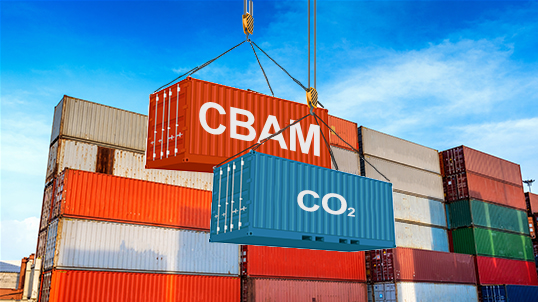
The EU Carbon Border Adjustment Mechanism (CBAM) has been finalized and will come into effect on October 1, 2023, making it the world’s first “carbon border tax” mechanism. On December 13, 2022, the European Parliament and the Council of the European Union reached a provisional agreement to establish the CBAM, which will initially cover steel, cement, electricity, fertilizers, aluminum, hydrogen, as well as indirect emissions and downstream products. The EU plans to gradually expand the scope of taxation to cover all goods under the EU carbon market by 2030.
During the transition period from 2023 to 2026, declared enterprises will be required to comply with reporting obligations. In 2026, the EU will officially impose a “carbon border tax,” and the EU carbon market will start reducing free allowances until they are entirely eliminated in 2034. The European Commission will oversee the implementation and supervision of CBAM.
Despite the CBAM’s finalization, concerns about the legality of carbon border taxes have been ongoing globally, centered on whether CBAM breaches the World Trade Organization (WTO) principles and damages the multilateral trading system. China has voiced its opposition to CBAM, and countries like India, Russia, and Brazil have expressed their criticisms and concerns, alleging that it is discriminatory and violates free trade regulations. The EU, however, maintains that CBAM is essentially compatible with WTO principles and intends to promote climate ambitious policies globally through carbon pricing and compliance. Observers believe that the exceptions clause in the General Agreement on Tariffs and Trade (GATT), which permits “necessary measures to protect human, animal, or plant life or health” and “measures related to the conservation of exhaustible natural resources,” is the most probable clause that the EU will use to resolve the dispute between CBAM and the WTO.
